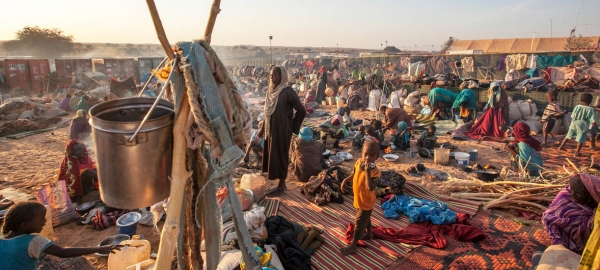Since 1963, the country of Sudan has experienced a long series of communal, intrastate and interstate conflicts that have led to one of the worst humanitarian crisis in history. Nevertheless, its extremely prolonged duration has led to the normalization of the current situation in Sudan that, as a result, is nowadays disregarded by the international community. This is what Marta Ruedas, United Nations Resident and Humanitarian Coordinator in Sudan, stated during an interview to UN News, highlighting that “if it were a new crisis, the dimensions of it, the scale and the need of it, would be such that it would be one of the biggest crises in the world.”
Since 2004, the casualties related to armed conflicts in Sudan have considerably dropped in number. On the other hand, new emergencies have arisen, such the huge number of Internally Displaced Persons (IDPs) and the continuous flow of refugees coming from South Sudan. In fact, Sudan hosts around 770,000 refugees coming from its southern neighbour and, in addition, it deals with millions of IDPs in the provinces of Darfur, Blue Nile and South Kordofan.
The humanitarian crisis implies the lack of provision of basic services for the people fleeing from conflict e.g. education and shelter, but also clean water and adequate sanitation, health care, livelihoods and energy. Particularly alarming was the outbreak of Acute Watery Diarrhoea (AWD) in 2017 that brought to the attention of the international community the grave risks of poor sanitary facilities and low standard health care.
In 2017, the funds requested to international donors for the Sudanese crisis have been provided only up to 45,5%. In 2018 up to today, the United Nations Office for Coordination of Humanitarian Affairs (UN OCHA) reports that the Humanitarian response plan has been only funded up to the 0,6% (USD 6,1 million). Ms Ruedas, acknowledging the so-called “donors’ fatigue”, warns against the risks of forgetting such a disastrous crisis and reiterates the need of continuous flow of funding in Sudan to alleviate the dire conditions of the IDPs within the territory.
To know more, please read:
https://news.un.org/en/story/2018/02/1003251
http://ucdp.uu.se/#country/625
https://news.un.org/en/story/2018/01/1000761
https://news.un.org/en/story/2018/01/1001541
https://fts.unocha.org/appeals/584/summary
https://fts.unocha.org/appeals/635/summary
https://www.unicef.org/appeals/sudan.html
https://reliefweb.int/report/sudan/statement-attributable-united-nations-resident-and-humanitarian-coordinator-sudan-ms-7







